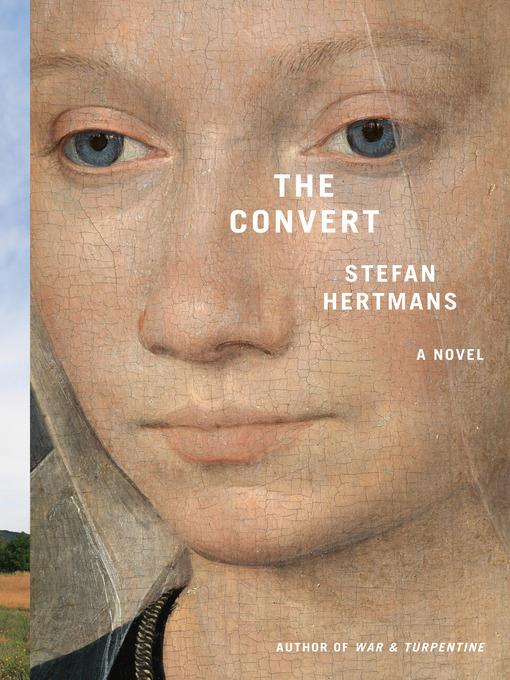
The Convert
A Novel
کتاب های مرتبط
- اطلاعات
- نقد و بررسی
- دیدگاه کاربران
نقد و بررسی

November 1, 2019
A Christian woman and a Jewish man fall in love in medieval France. In 1088, a Christian girl of Norman descent falls in love with the son of a rabbi. They run away together, to disastrous effect: Her father sends knights after them, and though they flee to a small southern village where they spend a few happy years, their budding family is soon decimated by a violent wave of First Crusaders on their way to Jerusalem. The girl, whose name becomes Hamoutal when she converts to Judaism, winds up roaming the world. Hertmans' (War and Turpentine, 2016, etc.) latest novel is based on a true story: The Cairo Genizah, a trove of medieval manuscripts preserved in an Egyptian synagogue, contained an account of Hamoutal's plight. Hamoutal makes up about half of Hertmans' novel; the other half is consumed by Hertmans' own interest in her story. Whenever he can, he follows her journey: from Rouen, where she grew up, to Monieux, where she and David Todros--her Jewish husband--made a brief life for themselves, and all the way to Cairo, and back. "Knowing her life story and its tragic end," Hertmans writes, "I wish I could warn her of what lies ahead." The book has a quiet intimacy to it, and in his descriptions of landscape and travel, Hertmans' prose is frequently lovely. In Narbonne, where David's family lived, Hertmans describes "the cool of the paving stones in the late morning, the sound of doves' wings flapping in the immaculate air." But despite the drama of Hamoutal's story, there is a static quality to the book, particularly in the sections where Hertmans describes his own travels. It's an odd contradiction: Hertmans himself moves quickly through the world, but his book doesn't quite move quickly enough. Constructed with delicacy, lyricism, and care, Hertmans' novel still feels occasionally static.
COPYRIGHT(2019) Kirkus Reviews, ALL RIGHTS RESERVED.

December 9, 2019
This commanding historical novel from Flemish author Hertmans (War and Turpentine) follows a Jewish convert during an unstable moment in Medieval Europe. Vigdis Adelais, a 17-year-old Christian woman from a prominent Norman family in Rouen, France, falls in love with David Todros, a Jewish student at a local yeshiva, in 1088. Risking grave penalty and dodging knights sent by her family to find her, Vigdis flees with David to his family’s home in Southern France. After converting, she struggles to learn Jewish customs. Her husband, who calls her Hamoutal, masks her Christian origins by telling a rabbi that her real name is Sarah. After a new pope preaches the first crusade in 1096, knights perpetuate a gruesome pogrom in their small mountain town, killing David and abducting two of their children. Hamoutal, broken by grief, embarks on a perilous quest to find her children that has tragic consequences. The vivid descriptions of the era and Hamoutal’s deteriorating mental state mostly excuse Hertmans’s distracting breaks in the fictional narrative with chapters of his own travelogue (“I drive out of Brussels in the afternoon”). The novel will satisfy readers willing to be swept away into a starkly different time.

December 15, 2019
Reading award-winning Flemish author Hertmans' (War & Turpentine, 2016) literary latest is akin to engaging with a passionate conversationalist about his or her research into an engrossing topic. Mining a historical record that offered a basic outline of a medieval life, Hertmans conjures Vigdis Adela�s, Christian daughter of a wealthy eleventh-century French family. She converted to Judaism for love of a prominent rabbi's son then absconded with him across dangerous terrain, pursued by her father's knights. The couple eventually settled in the small village where, centuries later, Hertmans would come to live. Hertmans has a unique voice, and his personal connection fosters a singular depth and engagement of author with subject. The novel is a storyteller's tapestry: Hertmans' vivid modern travelogue traces what remains of the historical Vigdis, which he skillfully weaves into his fictional imaginings of Vigdis' life. The horrors of anti-Semitism and the unintended consequences of the First Crusade are pitilessly portrayed, resulting in a story that is tragic and harrowing, yet beautifully told, with an ambience that is fully realized for both the eleventh century and our own.(Reprinted with permission of Booklist, copyright 2019, American Library Association.)

























دیدگاه کاربران